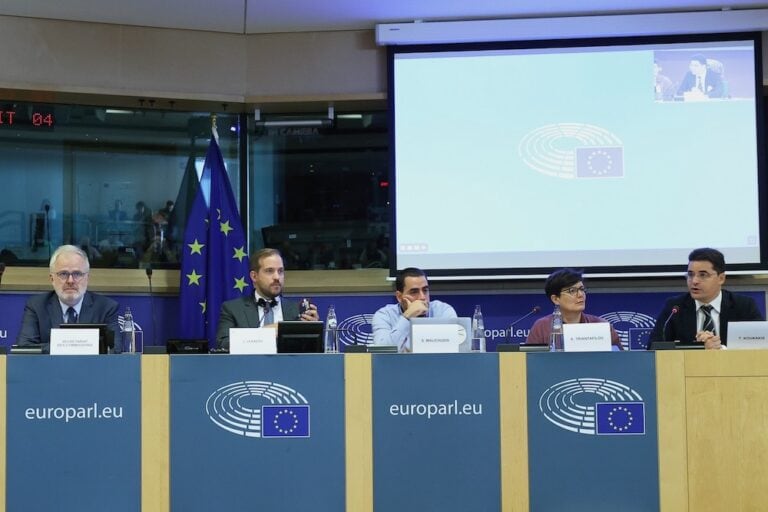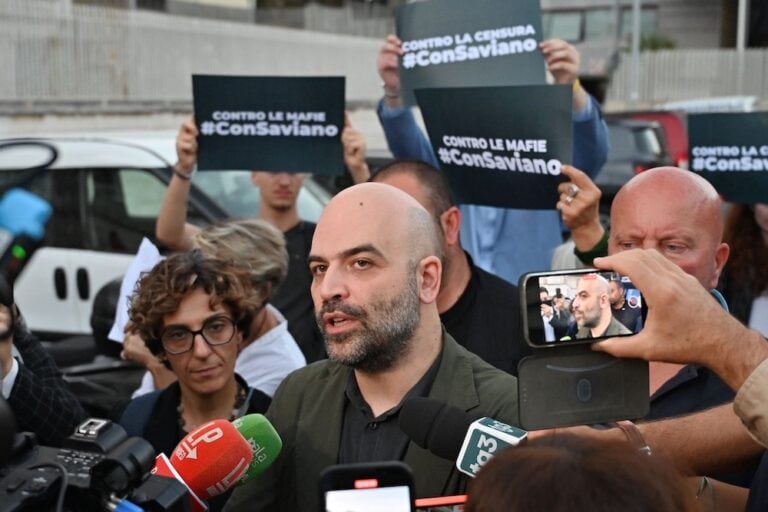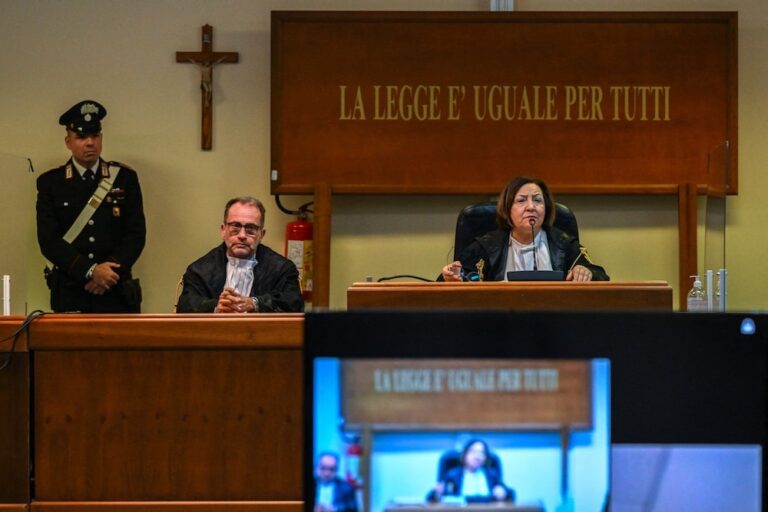Media concentration and absence of effective conflict of interest laws are causes for concern, says IPI.
(IPI/IFEX) – VIENNA, 16 November 2010 – The International Press Institute (IPI) on Friday completed a week-long press freedom mission to Italy during which it met with a broad array of media stakeholders, politicians and government representatives, and concluded that while the media in Italy is marked by a strong degree of freedom, there are pockets of serious concern.
IPI noted that Italian Prime Minister Silvio Berlusconi’s ownership of the country’s most powerful private broadcasting company, in what by many democratic standards would constitute a clear conflict of interest, along with his willingness and ability to politically influence Italy’s public broadcaster RAI, have negative effects on the diversity and plurality of Italy’s television news spectrum.
At the same time, it was clear that the country’s print media enjoys a far greater breadth of political opinions and freedom, although leading national newspapers were backed by powerful industrial groups and advertisers whose priorities did not always coincide with those of news editors.
IPI expressed relief at the apparent stalling of the country’s so-called ‘Wiretap Bill’ – which the government had portrayed as measure to protect privacy in a country marked by an above-average number of wiretaps, and a media that delights in exposing wiretap details at early stages of investigations, even when to do so is questionable from a journalistically ethical perspective. Portions of the bill, however, including restrictions on the legitimate reporting of investigations and potential fines for publishers of up to almost half a million Euros had sparked strong concerns about press freedom, particularly following a string of political and corruption scandals in Italy.
The politicisation of public broadcaster RAI is worrisome. While it is clear that this politicisation pre-dates Prime Minister Berlusconi’s rise to political prominence, it appears to have intensified under his leadership. A notable example was the taking off air of three programs, following an announcement by Prime Minister Berlusconi. The shows were subsequently reinstated by magistrates’ decisions.
The effect of television media concentration in the hands of Italy’s prime minister is apparent when one considers that according to polls the vast majority of Italy’s citizens use television as a primary source of information.
IPI was also concerned to hear of the difficulties Italian journalists face in covering organised crime, particularly in regions of the country in which organised crime syndicates project significant influence.
Some concerns exist, as well, with respect to the procedure by which journalists must accede to the National Order of Journalists if they are to be considered bona fide, accredited journalists with full professional rights. An exam which each applicant must sit is presided over by – in addition to a number of senior journalists – three magistrates. The involvement of state judicial authorities in any decisions about who may or may not become a journalist is troubling.
IPI Press Freedom & Communications Manager Anthony Mills – who led the mission – said: “While Italy does of course not compare to undemocratic countries in which press freedom is but a dream, some areas of serious concern do exist. The absence of effective conflict of interest legislation has resulted in a degree of television media concentration that negatively affects the plurality and diversity of information to which citizens in a democracy are entitled, and the politicisation of state broadcaster RAI appears to be emblematic of the politicisation which runs through the media fabric as a whole.”
IPI will produce a report laying out in detail its findings during the mission.
The IPI delegation included IPI Vice-Chairman and Former Assistant Managing Editor at the Los Angeles Times Simon Li, IPI Board Member and Editor-in-Chief of Austria’s Der Standard newspaper Alexandra Foederl-Schmid, IPI Press Freedom & Communications Manager Anthony Mills, and IPI Press Freedom Adviser Barbara Trionfi.


